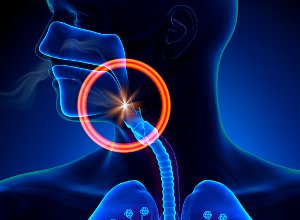 Increasing severity of sleep-disordered breathing and sleep disruption are associated with epigenetic age acceleration, according to preliminary results of a US study. Results show that each standard deviation increase in the apnoea-hypopnea index, a measure of sleep-disordered breathing severity, was associated with the equivalent of 215 days of biological age acceleration. Similarly, each standard deviation increase in the arousal index, a measure of sleep disruption, was associated with the equivalent of 321 days of age acceleration.
Increasing severity of sleep-disordered breathing and sleep disruption are associated with epigenetic age acceleration, according to preliminary results of a US study. Results show that each standard deviation increase in the apnoea-hypopnea index, a measure of sleep-disordered breathing severity, was associated with the equivalent of 215 days of biological age acceleration. Similarly, each standard deviation increase in the arousal index, a measure of sleep disruption, was associated with the equivalent of 321 days of age acceleration.
"People's biological age might not be the same as their chronological age," said lead author Dr Xiaoyu Li, a postdoctoral research fellow in the division of sleep and circadian disorders in the department of medicine at Brigham and Women's Hospital and the department of social and behavioural sciences at the Harvard TH Chan School of Public Health.
"Individuals whose biological age is higher than their chronological age exhibit age acceleration or fast aging. In our study, we found that more severe sleep-disordered breathing is associated with epigenetic age acceleration. Our data provide biological evidence supporting adverse physiological and health effects of untreated sleep-disordered breathing."
Sleep-disordered breathing, such as obstructive sleep apnoea, is characterised by abnormalities of respiration during sleep. Episodes often result in reductions in blood oxygen saturation and are usually terminated by brief arousals from sleep. Nearly 30m adults in the US. have obstructive sleep apnoea. Common warning signs include snoring and excessive daytime sleepiness.
According to the authors, epigenetic age acceleration is a DNA methylation-based marker of fast biological aging, and it is associated with modifiable lifestyle factors. Although sleep-disordered breathing is associated with multiple age-related health disorders, its relationship with epigenetic aging has not been well studied.
The study involved 622 adults with a mean age of 69 years; 53.2% were women. Participants were measured for blood DNA methylation, and their sleep was evaluated at home by polysomnography. Age acceleration measures were calculated as residuals from the regression of each epigenetic age on chronological age. The association of each sleep-disordered breathing trait with age acceleration was estimated using linear regression, controlling for socio-demographics, health behaviours, body mass index, and study site.
Another surprising finding was that the associations were stronger in women than in men, suggesting that women may be particularly vulnerable to the adverse effects of sleep-disordered breathing.
"While women are often considered to be at lower risk for health outcomes related to sleep-disordered breathing, our findings suggest increased biological susceptibility," said Li.
The authors suggested that future work should study whether treatment reduces epigenetic age acceleration among people who have sleep-disordered breathing.
"Since sleep-disordered breathing is not only common and treatable, but often undiagnosed and under-treated, our data highlight the potential for sleep-disordered breathing treatment to improve age-related chronic conditions and longevity," said Li. "Because epigenetic changes are reversible, epigenetic age estimators may be useful for identifying and validating anti-aging interventions."
The study was supported by funding from the National Heart, Lung, and Blood Institute of the National Institutes of Health.
Abstract
Introduction: Identifying contributors to accelerated aging may elucidate risks and mechanisms for age-related diseases and mortality. A DNA methylation (DNAm)-based marker of fast biological aging, epigenetic age acceleration, is associated with modifiable lifestyle factors. Sleep disordered breathing (SDB) is a common disorder that results in oxidative stress and inflammation and is associated with multiple age-related health disorders; however, SBD has not been well studied with respect to epigenetic aging. We examined the association of SDB traits with epigenetic age acceleration, and whether the association differed by sex.
Methods: A diverse sample (N = 622) had blood DNA methylation measured and underwent Type 2 in-home polysomnography, which assessed apnea-hypopnea index (AHI), percentage of sleep time that oxygen saturation is lower than 90% (Per90), and arousal index. Using DNA methylation, two validated epigenetic age measures were computed: DNAm PhenoAge and DNAm age. Age acceleration measures were calculated as residuals from the regression of each epigenetic age on chronological age. The association of each SDB trait with age acceleration was estimated using linear regression, controlling for socio-demographics, health behaviors, BMI, and study site.
Results: Participants were 53.2% female with a mean age of 68.7 (SD: 9.2) years. AHI was associated with greater DNAm PhenoAge acceleration (β = 0.03; 95% CI [0.00, 0.06]), equivalent to 215 days of DNAm PhenoAge acceleration for 1-SD increase in AHI. Arousal index was associated with greater DNAm age acceleration (β = 0.04; 95% CI [0.01, 0.07]), equivalent to 321 days of DNAm age acceleration for 1-SD increase in arousal index. Both associations were stronger in women compared to men. There was no evidence that Per90 was associated with epigenetic age acceleration or exhibited sex differences.
Conclusion: Increasing SDB severity and sleep disruption was associated with epigenetic age acceleration, independent of measured confounders. These associations were stronger in women than in men, suggesting that women may be particularly vulnerable to the adverse effects of SDB. Future work should study whether treatment reduces epigenetic age acceleration among those individuals with SBD.
Authors
Xiaoyu Li, Yongmei Liu, Stephen S Rich, Jerome I Rotter, Susan Redline, Tamar Sofer
[link url="https://www.sciencedaily.com/releases/2019/06/190607193709.htm"]American Academy of Sleep Medicine material[/link]
[link url="https://academic.oup.com/sleep/article-abstract/42/Supplement_1/A118/5451843?redirectedFrom=fulltext"]Sleep abstract[/link]
